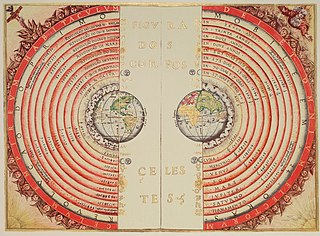An emere, in traditional Yoruba culture, is a child who can travel between the spiritual and physical world at will. A negative connotation is associated with the word, as it implies that a family's child may disappear and reappear at will. The impatient emere wants the best of heaven and Earth. An emere is a spirit in disguise, misrepresenting death as life, and is clever enough to disguise its objectives. Believed to be more powerful than witches, they most often die on a particular day of joy. On wedding days, when having their first baby, graduation from university etc., depending on the degree of happiness the event might cause. They are also believed to be extremely pretty, and have seductive powers.

The Yorùbá people are an African ethnic group that inhabits western Africa. The Yoruba constitute about 44 million people in total. The majority of this population is from Nigeria, where the Yorùbá make up 21% of the country's population, according to the CIA World Factbook, making them one of the largest ethnic groups in Africa. Most Yoruba people speak the Yoruba language, which is the Niger-Congo language with the largest number of native, L1 or first language speakers.
The spirit world, according to spiritualism, is the world or realm inhabited by spirits, both good or evil of various spiritual manifestations. Whereas religion regards an inner life, the spirit world is regarded as an external environment for spirits. Although independent from the natural world, both the spirit world and the natural world are in constant interaction. Through mediumship, these worlds can consciously communicate with each other. The spirit world is sometimes described by mediums from the natural world in trance.

Heaven, or the heavens, is a common religious, cosmological, or transcendent place where beings such as gods, angels, spirits, saints, or venerated ancestors are said to originate, be enthroned, or live. According to the beliefs of some religions, heavenly beings can descend to earth or incarnate, and earthly beings can ascend to heaven in the afterlife, or in exceptional cases enter heaven alive.
The emere gives unconditional support to heaven while on earth, distorting the balance of power, betraying Earth and its followers, annoyed that Earth did not allow visitors from heaven.
An emere is usually considered to be female.
The Apostles' Creed, sometimes titled the Apostolic Creed or the Symbol of the Apostles, is an early statement of Christian belief—a creed or "symbol". It is widely used by a number of Christian denominations for both liturgical and catechetical purposes, most visibly by liturgical Churches of Western tradition, including the Catholic Church, Lutheranism and Anglicanism. It is also used by Presbyterians, Moravians, Methodists and Congregationalists.

The Book of Revelation, often called the Book of Revelations, Revelation to John, the Apocalypse of John, The Revelation, or simply Revelation, the Revelation of Jesus Christ or the Apocalypse, is the final book of the New Testament, and therefore also the final book of the Christian Bible. It occupies a central place in Christian eschatology. Its title is derived from the first word of the text, written in Koine Greek: apokalypsis, meaning "unveiling" or "revelation". The Book of Revelation is the only apocalyptic document in the New Testament canon. The only extended apocalyptic passage in the Old Testament is in the Book of Daniel.

The flat Earth model is an archaic conception of Earth's shape as a plane or disk. Many ancient cultures subscribed to a flat Earth cosmography, including Greece until the classical period, the Bronze Age and Iron Age civilizations of the Near East until the Hellenistic period, India until the Gupta period, and China until the 17th century.

Satan, also known as the Devil, is an entity in the Abrahamic religions that seduces humans into sin or falsehood. In Christianity and Islam, he is usually seen as either a fallen angel or a jinn, who used to possess great piety and beauty, but rebelled against God, who nevertheless allows him temporary power over the fallen world and a host of demons. In Judaism, Satan is typically regarded as a metaphor for the yetzer hara, or "evil inclination", or as an agent subservient to God.

In Christianity, ascension of Jesus is the departure of Christ from Earth into the presence of God in heaven. In the Christian tradition, reflected in the major Christian creeds and confessional statements, God exalted Jesus after his death, raising Him as first of the dead, and taking Him to heaven, where Jesus took his seat at the right hand of God. While in modern times a literal reading of the ascension-accounts has become problematic, as its cosmology is incompatible with the modern, scientific worldview, the real relevance of Jesus' ascension lies in this exaltation.

In astronomy, the geocentric model is a superseded description of the Universe with Earth at the center. Under the geocentric model, the Sun, Moon, stars, and planets all orbited Earth. The geocentric model was the predominant description of the cosmos in many ancient civilizations, such as those of Aristotle in Classical Greece and Ptolemy in Roman Egypt.

Biblical cosmology is the biblical writers' conception of the cosmos as an organised, structured entity, including its origin, order, meaning and destiny. The Bible was formed over many centuries, involving many authors, and reflects shifting patterns of religious belief; consequently, its cosmology is not always consistent. Nor do the biblical texts necessarily represent the beliefs of all Jews or Christians at the time they were put into writing: the majority of those making up Hebrew Bible or Old Testament in particular represent the beliefs of only a small segment of the ancient Israelite community, the members of a late Judean religious tradition centered in Jerusalem and devoted to the exclusive worship of Yahweh.

Tiān (天) is one of the oldest Chinese terms for heaven and a key concept in Chinese mythology, philosophy, and religion. During the Shang dynasty, the Chinese referred to their supreme god as Shàngdì or Dì (帝,"Lord"). During the following Zhou dynasty, Tiān became synonymous with this figure. Heaven worship was, before the 20th century, an orthodox state religion of China.

The Genesis creation narrative is the creation myth of both Judaism and Christianity. The narrative is made up of two stories, roughly equivalent to the first two chapters of the Book of Genesis. In the first, Elohim creates the heavens and the Earth in six days, then rests on, blesses and sanctifies the seventh. In the second story, God, now referred to by the personal name Yahweh, creates Adam, the first man, from dust and places him in the Garden of Eden, where he is given dominion over the animals. Eve, the first woman, is created from Adam and as his companion.

Prometheus Unbound is a four-act lyrical drama by Percy Bysshe Shelley, first published in 1820. It is concerned with the torments of the Greek mythological figure Prometheus, who defies the gods and gives fire to humanity, for which he is subjected to eternal punishment and suffering at the hands of Zeus. It is inspired by the classical Prometheia, a trilogy of plays attributed to Aeschylus. Shelley's play concerns Prometheus' release from captivity, but unlike Aeschylus' version, there is no reconciliation between Prometheus and Jupiter (Zeus). Instead, Jupiter is abandoned by his supportive elements and falls from power, which allows Prometheus to be released.

Nūr may refer to the "Light of God". The word "nūr'" is Arabic for "light", and has been passed on to many other languages. It is often used in the Quran, notably in a verse that states has been the subject of much discussion. Many classical commentators on the Quran considered that this should be taken metaphorically, as in the sense that God illuminates the world with understanding, rather than literally. The Andalusian scholar Abu Bakr ibn al-Arabi categorized nūr into different levels of understanding from the most profound to the most mundane. Shias believe nūr, in the sense of inner esoteric understanding, is inherited through the Imams, who in turn communicate it to the people.
Islamic cosmology is the cosmology of Islamic societies. It is mainly derived from the Qur'an, Hadith, Sunnah, and current Islamic as well as other pre-Islamic sources. The Qur'an itself mentions seven heavens.

In Greek mythology, Gaia, also spelled Gaea, is the personification of the Earth and one of the Greek primordial deities. Gaia is the ancestral mother of all life: the primal Mother Earth goddess. She is the immediate parent of Uranus, from whose sexual union she bore the Titans and the Giants, and of Pontus, from whose union she bore the primordial sea gods. Her equivalent in the Roman pantheon was Terra.

Heaven's Gate was an American UFO religious millenarian cult based near San Diego, California. It was founded in 1974 and led by Marshall Applewhite (1931–1997) and Bonnie Nettles (1927–1985). On March 26, 1997, members of the San Diego County Sheriff's Department discovered the bodies of 39 members of the group in a house in the San Diego suburb of Rancho Santa Fe. They had participated in a mass suicide; specifically, a coordinated series of ritual suicides, in order to reach what they believed was an extraterrestrial spacecraft following Comet Hale–Bopp.

Sumerian religion was the religion practiced and adhered to by the people of Sumer, the first literate civilization of ancient Mesopotamia. The Sumerians regarded their divinities as responsible for all matters pertaining to the natural and social orders.

A human disguise is a concept in fantasy, folklore, mythology, religion, literary tradition, iconography, and science fiction whereby non-human beings such as aliens, angels, demons, gods, monsters, robots, Satan, or shapeshifters are disguised to seem human. Stories have depicted the deception as a means used to blend in with people, and science fiction has used the dichotomy to raise questions about what it means to be human.

In Christianity, heaven is traditionally the location of the throne of God as well as the holy angels. In traditional Christianity, it is considered to be a physical place in the afterlife. In most forms of Christianity, Heaven is also understood as the abode for the righteous dead in the afterlife, usually a temporary stage before the resurrection of the dead and the saints' return to the New Earth.

In Norse mythology, Dökkálfar and Ljósálfar are two contrasting types of elves; the former dwell within the earth and have a dark complexion, while the latter live in Álfheimr, and are "fairer than the sun to look at". The Dökkálfar and the Ljósálfar are attested in the Prose Edda, written in the 13th century by Snorri Sturluson, and in the late Old Norse poem Hrafnagaldr Óðins. Scholars have produced theories about the origin and implications of the dualistic concept.
Heaven & Earth is the eighth of the major box set releases from English progressive rock group King Crimson, released in 2019 by Discipline Global Mobile, Panegyric Records, Inner Knot & Wowow Entertainment, Inc..

















